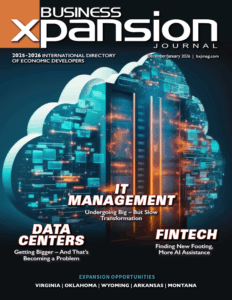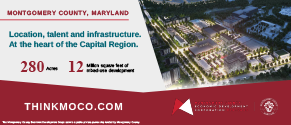
Washington: Building Business Legends
25 Nov, 2014
By Rachel Duran
Washington state is a hub of innovation, where collaborations between major industry sectors should not be underestimated. Foreign investors are taking notice and increasingly making the most of the state’s culture of innovation. The investments are the result of a surge in business meetings and trade show attendance by state economic development officials in locations around the world.
“This activity has been reflected in our pipeline,” says Mary Trimarco, assistant director, business development for the Washington State Department of Commerce. In October, economic development officials were scheduled to return to China, following up on a trade mission that took place in April.
“There are opportunities in clean technology and various partnerships,” Trimarco says. “We have a large-scale project out of China that is a natural gas play. They will convert the natural gas to methanol and ship it back to China to produce olefins to use in place of coal. There are all sorts of industrial uses for olefins.”
The methanol project will be located in two locations, Tacoma and Kalama. The projects are worth about $1 billion each in capital investment and are expected to create hundreds of jobs.
Additional FDI projects are progressing quickly, with companies entering Washington’s supply chain, driven by both a stronger economy, and the fact that The Boeing Co. will manufacture its 737 MAX and the 777 from the state.
International companies are also interested in the state’s information and communication technology, clean tech, and advanced manufacturing sectors, says Allison Clark, managing director, business development, Washington State Department of Commerce. She says the economic development team is working on 60 projects, 39 of which are international projects.
In other state-level developments, initiatives supporting industry cluster activity include the addition of sector leaders, who work on the policy front for the state’s leading sectors, which include aerospace, ITC, life sciences, clean tech, agriculture and food processing, maritime and military.
Companies are further supported through an employer-based workforce program, Washington Work Start, Trimarco says. Existing or new companies with 15 or more employees are eligible to receive workforce training funds. “The program has been in place for a year and a half,” Trimarco says. “It has helped with recruitment as well as helping our companies grow.”
Down to Business
- Washington does not collect personal, corporate or capital gains taxes.
- Washington ranks 42nd in the nation in regard to state and local taxes as a percentage of gross state product.
- There are 14,000 software companies and 315,000 tech-based workers in the state.
- Washington is a day closer to Asia than other U.S. West Coast ports; the state is the No. 1 exporter to China.
Industries and Innovations
Washington is home to internationally known companies including Amazon.com, Boeing, Costco, Microsoft, REI, Starbucks and Paccar, makers of Peterbilt and Kenworth trucks. UPS got its start in Seattle.
Business development strategies around the material sciences sector are on the rise. The state has expertise in material sciences, and a growing critical mass in composites and carbon fibers. “With BMW SGL here [Moses Lake] and with other companies interested in being here, combined with our inexpensive and clean power, we are well positioned for growth in the material sciences arena,” Trimarco says.
BMW SGL has broken ground for a third building, and will begin production on a fourth line in its second building. By late next year the company will be running six production lines, which will make it the world’s single largest producer of carbon fiber. The company is a joint venture of the BMW Group and the SGL Group. The company produces carbon fibers for use in the BMW i series of vehicles, such as the chassis in the BMW i3.
The state’s aerospace industry continues its tradition of leadership. The next couple of years are a time of opportunity as Boeing awards contracts all over the world to support the development of the 777, Trimarco says. What’s more, tax credits passed last year by the legislature are beneficial to the expansion of the aerospace industry.
“There are always challenges and always finding the best workforce is hard,” Trimarco adds. “That is why they [Boeing] choose to stay here; a huge factor was the workforce.” Clark adds that Washington is home to 1,300 aerospace companies, and 150,000 skilled aerospace workers.
An expertise and talent base focused on flight testing operations was one of the factors behind Mitsubishi Aircraft Corp.’s selection of the Grant County International Airport. Earlier this year, the company announced it would test and certify its regional jets from the airport, expecting to invest $60 million and creating 50 jobs, Clark notes.
Grant County was home to the former Larson Air Force Base, which when closed was turned over to the Port of Moses Lake, a municipal government entity. The port owns and operates the county’s airport, where Boeing has flight tested and certified commercial airplanes. Mitsubishi’s hangar will be built by AeroTEC LLC, which is a flight testing and certification company. “The hangar can fit up to three of the Mitsubishi regional jets,” says Jonathan Smith, executive director, Grant County Economic Development Council.
Aerospace activities are also important in the city of SeaTac, located between Seattle and Tacoma. The city is home to Boeing’s largest spare parts distribution center. At more than 700,000 square feet, the center houses millions of parts used to support and service commercial airliners nationwide.
City officials are partnering with the Port of Seattle, which owns and operates the Seattle-Tacoma International Airport. The port has 100 acres available for development outside of the airport property, and which is located in the city of SeaTac. The site is ideal for industrial and assembly activities associated with the aviation industry or for those who need access to the airport to ship their goods worldwide, says Jeff Robinson, economic development manager, city of SeaTac.
SeaTac’s proximity to the airport, Interstate 5, and three state highways have played a major role in the expansion decisions of 10 international logistics companies, all within the last year.
Talent and Education
The city of SeaTac features the Highline school district, which operates an aviation high school. The city is also located within 30 minutes of the University of Washington in Seattle, and the school’s Tacoma branch. Highline College is located five minutes from SeaTac. “They provide education and job training in a variety of fields, including logistics,” Robinson says. The student body is comprised of many foreign students, creating a pool of foreign language speakers to support local businesses.
In Grant County, Big Bend Community College is launching a STEM program to support the area’s manufacturing, food processing and chemical industries. Smith says officials are updating the region’s wage and benefits survey for industrial and technical employers. Officials also continue to partner with community college staff to connect existing businesses with workforce training programs.
“The total population of the ZIP code is 45,000, and the world’s largest carbon fiber company is here, and Mitsubishi will do its flight testing here,” Smith points out. “With the infrastructure and the workforce in this rural area there are opportunities for projects that you typically see in cities that have an NFL team.”
Assets
Washington’s officials have been ramping up support to small businesses and entrepreneurs. The state’s leadership in innovation plays out in cross-industry collaborations. For example, a member of the IT industry brings ideas to the life sciences industry, or a member of the aerospace industry brings ideas to the advanced manufacturing industry.
“We have a sharing culture here; there are not barriers between businesses,” says Robb Zerr, marketing services manager for business services at the Washington State Department of Commerce. “In the Lake Union tech corridor, people share ideas and before you know it they are coming up with startups. That is fueling the economy in the Puget Sound region.”
Washington state officials planned to take part in Global Entrepreneurship Week, which took place in November. At last year’s event, 37 out of 39 Washington counties sponsored more than 100 events, all focused on fostering an entrepreneurial business climate.
Additional support includes the expansion of broadband coverage throughout the state. “This helps entrepreneurs and can drive small business growth,” Trimarco says.
Other assets driving business expansion are low-cost hydro power and an abundance of natural gas. “The average electric rate for an industrial customer is less than 3 cents a kilowatt hour in Grant County,” Smith says. “We have a public utility district that owns and operates two dams on the Columbia River. This is attractive to the area’s chemical manufacturers that need a lot of power to make the chemical processes occur.”
In addition to physical infrastructure assets, companies are also interested in “people movers:” getting their people to and from work. SeaTac will soon be the only city in the Seattle metro area, besides Seattle, to have three light rail stations. A new line, set to open in 2016, will run to the University of Washington campus in Seattle.
Outdoors and Recreation
Washington is home to two major mountain ranges, the Cascade Range and the Olympic Mountains. The mountains appeal to mountain climbers, mountain bikers and hikers, and offer countless outdoor activities such as skiing and snowboarding.
Lifestyle
SeaTac also offers residents the most park acreage per capita of any city in King County, which is the largest county in western Washington. The city is close to the Puget Sound area and several marinas, and will soon have access to a new recreational trail, which spans from Lake Washington to the Puget Sound.
Trimarco says Seattle expects a tremendous amount of population growth in the next 10 years, according to Delta Airlines, which states the metro will be the fastest-growing region in the country. “This growth means more opportunities for business,” she says.
More Info
Washington State Department of Commerce
Grant County Economic Development Council
Illustration by David Castillo Dominici at Free Digital Photos.net










